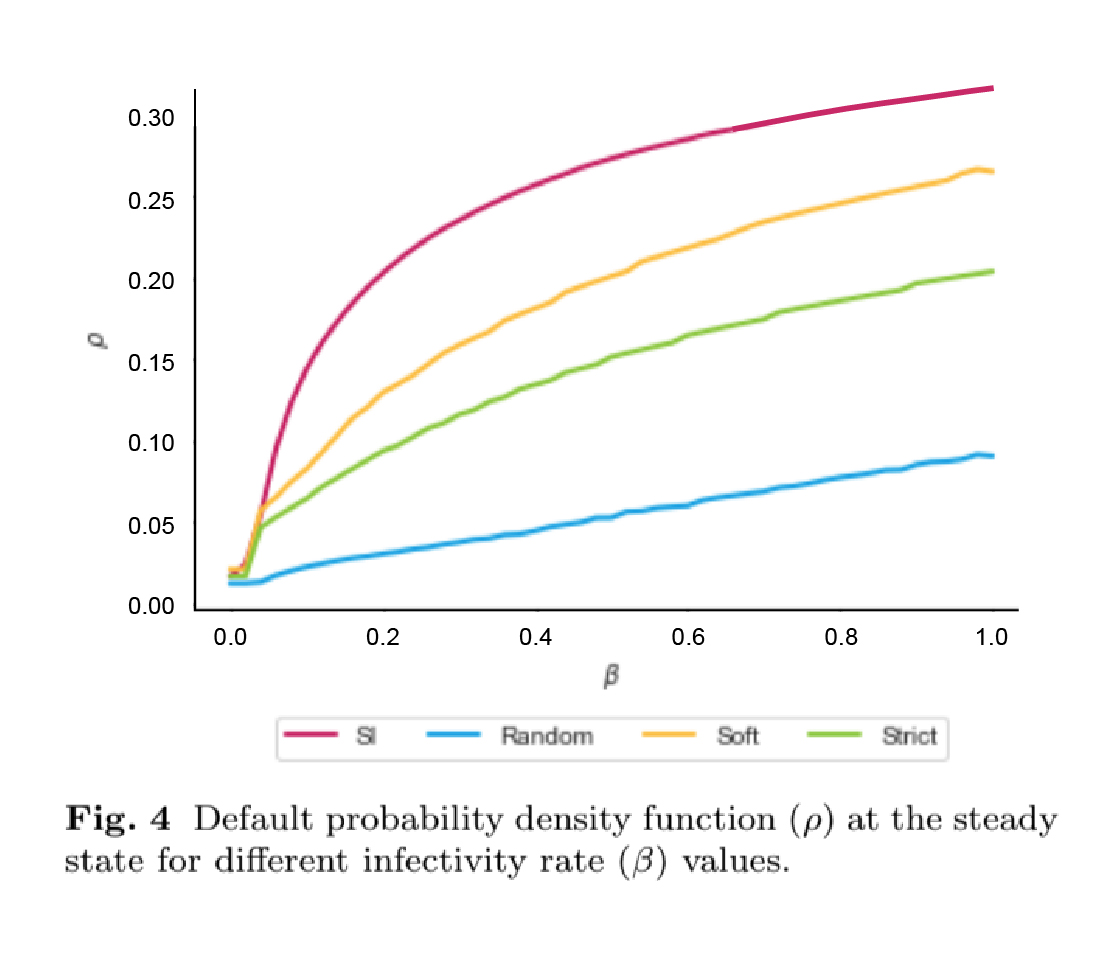
Agent-based default propagation: adding politics to default propagation in the economy
Default propagation cannot be understood by simply looking at supplier-customer relations as a set of static nodes and edges. The politics of these relations and the information on the current environment play an important role in how a crisis will spread in the economic system. A group of data scientists at BBVA has analyzed that matter in a paper that will be published at the Journal of Ambient Intelligence and Humanized Computing.
Data Scientist, Jordi Nin and Elena Tomás examined the different buyer selection strategies within a network of businesses ranging from random-altruistic rearrangement to very well-informed decisions, in which client knowledge about the situation that surrounds its business is proven to be crucial.

Specifically, the paper analyzed 4 situations: no change between nodes, random-altruistic rearrangement (in which a supplier that is not being paid finds a new buyer regardless of its ability to pay), a soft redirection (a supplier looks for an alternative to a buyer in financial distress if she has better financial health than herself), and strong redirection (a supplier accepts only if she is also defaulting on payments and my supplier has better scoring than I do, therefore more information is needed).
The simulations analyzed the response of 16 economic sectors to these four scenarios and measure the probability of contagion, and therefore of exposure to default contagion.

“This paper proves and measures that having access to information about the economic context of an agent and the risk of default contributes to the isolation of default dynamics, but it’s through and altruistic rearrangement of customer-supplier links that the whole system benefits at greater degree”, explains senior Data Scientist, Jordi Nin.